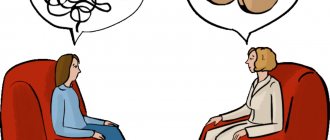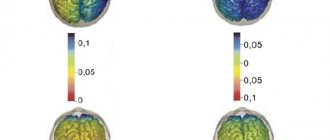Most people face various psychological problems, but not all of them seek professional help. There may be several reasons for this, but the main one is the lack of knowledge about specialists who can help in a given situation.
Depending on the severity of the condition, psychological assistance can be provided by a psychologist, psychiatrist, or psychotherapist. The activities of all these specialists are related to the impact on the state of mind and psyche of a person, however, these are different directions.
Powers of a psychiatrist
A psychiatrist is a doctor with a higher medical education, which is confirmed by a standard diploma. Such doctors have the right to work in specialized clinics and psychoneurological dispensaries. Their specialization is providing medical care for severe forms of mental disorders, such as various types of schizophrenia, paranoia and others. In addition, the psychiatrist may:
• assess the mental state of sick and healthy people;
• prescribe medications to treat patients;
• officially diagnose mental pathologies;
• forcibly hospitalize a sick person if he is considered dangerous to himself and others.
The psychiatrist must record all conversations with the patient; he is obliged to keep documentation and keep the person’s diagnosis secret.
But a visit to a psychiatrist does not mean automatic registration. Very often, doctors of other specializations refer patients to psychiatrists to assess their mental state and identify individual mental characteristics. A psychiatrist's certificate is also necessary for healthy people to obtain a driver's license or get a job.
Dementia
The cause of the development of this terrible disease is often diseases of the blood vessels and brain. Employees of nursing homes for patients with dementia are well aware of all the symptoms of the disease: a noticeable decrease in the level of intelligence, disorientation in the outside world, confusion, and impairment of the simplest self-care skills. It is impossible to cure the disease, but it is possible to slow down its progression if you recognize the symptoms in time and consult a specialist.
It is also necessary to show a loved one to a doctor because some reversible mental disorders belong to the category of pseudodementia, which means that the condition can be significantly improved. Sometimes depression can be the cause of detachment. And as soon as the relatives pay a little more attention to the person, everything returns to normal. Don’t leave your loved ones - be attentive to them, show the greatest possible tact, because they deserve it!
Who is a psychotherapist
In the treatment of many mental disorders, not only medication is used, but also psychotherapy. A psychiatrist and a psychotherapist often work together, but their methods of influence are different. A psychotherapist, first of all, acts with words; he conducts conversations, group and individual psychotherapy, etc. But if necessary, this specialist can also prescribe medication, as he is a certified doctor.
Many people ask themselves the question: psychotherapist and psychiatrist, what is the difference between these doctors? Here are a few differences between these specializations:
1. After receiving a medical diploma, a psychiatrist must work in his specialty for at least three years, after which he can undergo additional training and receive a certificate as a psychotherapist.
2. A psychiatrist treats severe forms of psychological disorders and prescribes medication. The psychotherapist uses other methods of influence, they are especially effective in borderline states. Such specialists are involved in the treatment of psychosomatic disorders when the body is sick, but it is not organic damage that is to blame, but mental wounds.
3. A psychotherapist is a person who is able to put a patient into a hypnotic trance and is proficient in auto-training and other psychological techniques. The psychiatrist does not use these treatment methods in his work.
Despite the fact that the medical specializations of a psychiatrist and a psychotherapist have differences, they are still aimed at helping people with various forms of psychological disorders.
There is another question that often baffles ordinary people: can a psychotherapist give official medical certificates, register and forcibly treat mentally ill people? The answer is “no”, since this is the competence of psychiatrists. A psychotherapist may have such credentials if he works for a government agency and has the appropriate accreditation.
Neuroses in the elderly
In many nursing homes there are people with various manifestations of neuroses. They are based on damage to the blood vessels of the brain. A person complains of ringing and noise in the ears, dizziness, heaviness in the head, has difficulty walking and getting out of bed, and gets tired even from light exertion.
If you notice that an elderly grandfather or aunt has suddenly become too irritable, cannot tolerate noise well, complains of insomnia and partial memory loss, do not pass by! The consequence of neurosis can be a serious deterioration in the general condition, upon the occurrence of which it will no longer be possible to return the person to a full life.
Who is a psychologist
Recently, it has become very fashionable to turn to psychologists. These specialists are included in the staff of many government agencies and private companies. However, not all people will still be able to answer the question: what is the difference between a psychologist and a psychiatrist?
First of all, it is necessary to remember that a psychologist is not a doctor. This specialist must have a humanities education, which can be obtained at any university in the country. Knowing all the features of human psychology, a psychologist can offer the most profitable marketing strategy, help select personnel, and resolve a difficult life situation. Children may need the help of psychologists to adapt to kindergarten or school, as well as adults at a new place of work.
The difference between specialists such as a psychologist, psychotherapist, and psychiatrist is that the former works only with healthy people. A psychologist does not have the right to conduct treatment or prescribe medications.
A separate group includes special psychologists who work with people with disabilities. They are called defectologists. Such specialists guide their patients, helping them adapt to life. But such work is possible in the absence of mental and mental disorders.
Recently, many people have begun to declare themselves psychoanalysts or psychotherapists, without having any right to do so. When asking for help, carefully select specialists, be sure to find out what kind of education they have, whether they have valid licenses and other permits.
Lecture “Human Psyche. Functions of the psyche"
PSYCHE
Plan:
- The concept of the psyche
- Functions of the psyche
- Disturbance of Consciousness
Literature:
- Vygotsky L.S. Psychology. –M.: Publishing house EKSMO-Press, 2010.
- Danilova N.N., Krylova A.L. Physiology of higher nervous activity: textbook. University with a degree in Psychology. –M.: Moscow State University Publishing House, 2009.
- Leontyev A.N. Selected psychological works: In 2 volumes. T.2. /Ed. V.V. Davydova et al. – M.: Pedagogy, 2008.
- Maklakov A.G. General psychology. – St. Petersburg, 2008.
1. The concept of the psyche. Functions of the psyche.
We feel tastes, smells, see objects, experience emotions. Some of us have an absolute ear for music, others have a good memory; Some enjoy walking, others enjoy reading books. Why can we experience and feel something, why are we so different from each other? Something gives us all these opportunities. This is our psyche. It is the properties and functions of the human psyche that provide us with everything we see, hear, feel, and how we behave.
The psyche is given to a person from birth, but develops in the process of life. It develops depending on the experience gained and circumstances. We need the psyche to receive, combine, understand information about the world around us, compare it with our needs and develop the necessary behavior. The basic functions of the psyche provide a person with adaptation to different conditions, the ability to communicate, learn, and, if the need arises, to survive. All functions are closely related and interdependent, therefore the normal psyche is holistic, they ensure the interaction of a person with the environment.
Psyche is a reflection of reality by the brain, manifesting itself in a person in the form of mental phenomena.
All mental phenomena are divided into three groups:
1) mental processes;
2) mental states;
3) mental properties of the individual.
Mental processes
are divided into:
1) cognitive (sensation, perception, thinking, memory and imagination);
2) emotional;
3) strong-willed.
Mental conditions
are divided into: 1)
motivational
- desires, interests, drives, passions;
2) states of organized consciousness
(manifested in various levels of attentiveness and efficiency);
3) emotional
(emotional tone of sensations, emotional response to reality, mood, conflicting emotional states - stress, affect, frustration);
4) volitional
(states of initiative, purposefulness, determination, perseverance, etc.
Borderline mental states of personality also differ
– psychopathy, character accentuations, neuroses and states of delayed mental development.
Mental states can be short-term, situational and stable, personal.
To psychic properties
personalities include:
1) temperament;
2) personality orientation (needs, interests, worldview, ideals);
3) character;
4) abilities.
This is the traditional classification of mental phenomena, coming from I. Kant. It underlies the construction of traditional psychology. However, this classification suffers from an artificial separation of mental processes from mental states and typological properties of the individual: cognitive, volitional and emotional processes are nothing more than certain mental capabilities (abilities) of the individual, and mental states are the current uniqueness of these capabilities.
2. Functions of the Psyche
- Communicative – provides the opportunity for people to communicate with each other.
- Cognitive – allows a person to understand the outside world around him.
- The regulatory function ensures the regulation of all types of human activity (play, study, work), as well as all forms of his behavior.
Factors of mental development Factors of mental development
it is generally accepted:
- heredity (the ability of an organism to repeat similar types of metabolism and individual development over a number of generations);
- environment (the social, material and spiritual conditions of his existence surrounding a person);
- developmental activity (the active state of the body, manifests itself when the movement programmed by the body towards a certain goal requires overcoming environmental resistance).
There are different points of view regarding the origin of the psyche:
- Idealistic -
the mental (soul) in its origin is not connected with the body (the biological carrier of the soul) and has a divine origin; - Dualistic -
there are 2 principles: mental (ideal) and biological (material). These two principles develop in parallel and are to a certain extent connected with each other. - Materialistically,
the phenomenon of the psyche is due to the evolution of living nature, and its existence should be considered as a property of highly developed matter.
Vygotsky Lev Semyonovich (1896-1934) - Soviet psychologist, author of the work “THE HISTORY OF THE DEVELOPMENT OF HIGHER MENTAL FUNCTIONS.”
Vygotsky L.S. showed that humans have a special type of mental functions that are completely absent in animals. These higher mental functions constitute the highest level of the human psyche and are called consciousness. They are formed during social interactions.
Higher mental functions (voluntary memory, voluntary attention, logical thinking) are of a social nature.
- First conclusion
in the work of Vygotsky L.S. answers the question: “How do relationships with the environment differ between animals and humans?” and it sounds like this:
The environment acts on the animal, modifying it and forcing it to adapt to itself. Man acts on nature and modifies it.
2) Second conclusion
lies in the fact that
a person, having mastered nature, learned to master his own psyche, he acquired higher mental functions, expressed in forms of voluntary activity (only a person is able to force himself to remember the necessary material, to pay attention to something).
3) Third conclusion
lies in the fact that a person tries to master his behavior with the help of psychological tools. (Vygotsky L.S. called them signs).
Signs are
artificial means with the help of which primitive man was able to master his behavior, memory, etc.
The main conclusion of Vygotsky’s concept:
“Man is fundamentally different from animals in that he has mastered nature with the help of tools. This left an imprint on his psyche - he learned to master his own higher mental functions. To do this, he uses psychological tools (signs). The universal and most typical system of signs is speech.”
Four levels of development of the psyche of living organisms
1. Irritability is
a property that distinguishes living matter from dead matter.
Manifests itself in the forced activity of a living organism. The higher the level of development of the organism, the more complex the manifestation of its activity.
Plants have the primary form of irritability (for example: “tropism” - forced movement towards the light).
2. Sensitivity -
characterizes the general ability to sense.
A distinctive feature from irritability is that living organisms have the opportunity to respond not only to biological environmental factors, but also to biologically neutral ones. (Characteristic of more developed organisms: worms, mollusks - the ability to avoid harmful environmental influences).
3. The behavior of higher animals is
a complex set of reactions of a living organism to environmental influences.
The higher the level of development, the more complex his behavior. Learning ability.
4. Human consciousness is
the highest level of mental reflection and regulation, inherent only to humans.
Consciousness acts as a continuously changing set of sensory and mental images that directly appear before the subject in his inner world and anticipate his practical activity.
A person refracts all perceived information about the world around him through a system of ideas about himself and forms his behavior based on values, ideals and motivational attitudes.
Only humans have the highest level of mental consciousness!
CONSCIOUSNESS -
the highest level of mental reflection of reality, manifested by the individual’s ability to be aware of the environment, present and past times, make decisions and manage their behavior in accordance with the situation.
Conscious activity is one of the highest psychological functions. Without the participation of consciousness, it is impossible to imagine any completed complex action.
The disease can change self-awareness, in particular, disrupt the awareness of oneself as a patient or the understanding of oneself as a person, one’s “I”.
3. Impaired Consciousness
In clinical practice, two large groups
pronounced pathological states of consciousness:
- Darkness;
- Shutdown;
1) Clouding of consciousness
includes:
- Delirium-
violation of orientation in place, time and environment, provided that orientation in one’s own personality is maintained.
The appearance of abundant visual and auditory hallucinations, usually of a frightening nature, is typical. The visual image is often various zoopsies (rats, mice, snakes, etc.). These disorders are accompanied by psychomotor agitation: the patient experiences fear, anxiety, tries to defend himself, and flee. The sympathetic nervous system is activated (increased blood pressure, sweating, trembling, tachycardia). In an acute condition, the patient poses a certain danger to others. After leaving the state, a partial memory of the experience is retained. Delirium is most often observed in alcoholism; in everyday life it is classified as “delirium tremens.”
- Amentia (amentive state
ie
) -
observed in severe and long-term illnesses (infections, septicopyemia, etc.).
Orientation in the environment, in time and in one’s own personality is disrupted. The patient does not comprehend his surroundings; his speech consists of fragments of phrases. Often the patient is agitated in bed. The painful condition can last for a long time.
- Oneirod
(dream-like state) - characterized by incomplete, often double, orientation in place, time and one’s own personality. The patient seems to be immersed in a world of dream-like fantastic dreams: he is on other planets, in exotic gardens, etc.
Moreover, he is not the main character, but rather an accomplice, in contrast to the state of delirium, in which the patient empathizes with vivid visual and auditory deceptions, and builds his behavior accordingly.
The facial expressions of patients are characteristic: sometimes they are detached and sad, sometimes they are “enchanted.” The eyes are often closed or half-closed. If you try to make contact with the patient, he can talk about his dreams and at the same time give his name and room number (double orientation). Memories of the experience remain. Patients talk colorfully about the most acute painful disorders. Oneiric disorders of consciousness are observed in acute endogenous psychoses and some infectious diseases.
- Cmoderate state
reminiscent of the state of a person at twilight, when he sees only a small number of dimly lit surrounding objects.
In such states, consciousness seems to slide, attention stops only on individual phenomena. The patient is well oriented in the environment, his self-awareness is changed. Behavior is dominated by automated actions that are outwardly quite orderly. The patient gives the impression of a person deeply immersed in his thoughts and fenced off from his surroundings. Sometimes frightening hallucinatory delusional states develop: the patient runs in fear or attacks imaginary enemies. In such cases, he is dangerous to others.
The twilight state is observed in epilepsy and organic diseases of the brain. The twilight state occurs suddenly and can also end unexpectedly. It usually lasts from several minutes to several hours, less often days. The memory of the experience is not retained.
- State of ambulatory automaticity
also characterized by automated forms of behavior. Awareness of the environment and self-awareness are altered (as in half-asleep). This includes sleepwalking (somnambulism, sleepwalking) and trance - a violation of consciousness, in which the patient can perform purposeful actions, travel by transport during the day, go to another area
The state of ambulatory automatism ends as suddenly as it appeared. If, upon leaving it, the patient finds himself in an unfamiliar environment, then he cannot give himself an account of what happened.
- Disorder of self-consciousness, and
Or
depersonalization is
a painful feeling of alienation of one’s own personality, conscious and painfully experienced by the patient himself.
The body has changed (it has become large, small, heavy, light) and its usual layout (long arms, short torso, excessively large head, etc.)
In the clinic of internal diseases, loss of consciousness is predominantly encountered (from mild to complete).
2)
Switching off consciousness
includes:
- Nullification
(from Lat. pubes - cloud) - mild impairment of consciousness.
Consciousness becomes foggy for a few seconds or minutes, covered with a light cloud. Orientation in the environment and one’s own personality is not disturbed, memories of events after a painful disorder are preserved.
- Somnolence
(drowsiness) - a long-term (hours, days) state resembling drowsiness.
The orientation is not affected. More often this occurs against the background of neurotropic intoxication (poisoning with alcohol, sleeping pills, etc.).
Based on the depth of disturbance of consciousness, coma, stupor and stupor are distinguished.
.
- Stun
- a state of incomplete wakefulness, which is characterized by loss or disturbance of varying degrees of severity of the coherence of thoughts and actions, due to a severe disorder of attention, drowsiness. Patients are lethargic, inhibited, and do not immediately respond to questions addressed to them; intelligence is reduced, memory is weakened.
Stunning occurs in varying degrees of severity and is observed in diabetic hyperglycemia, lobar pneumonia, peritonitis, neuroinfections, anemia, typhus, etc.
- Sopor
(Latin “unconsciousness”) - a deep stage of stunning.
The patient is immobilized, it is not possible to evoke responses from him, with the exception of pain (withdrawal of the hand when painful stimulation is applied to it), and the reaction of the pupils to light. The response to speech is either weak or absent. After a short awakening (with mild stupor), the patient again falls into an unconscious state and does not remember the moments of awakening in the future. This condition is observed in severe infections, intoxications, and severe cardiovascular decompensation.
- Coma-
a state of complete loss of consciousness.
The patient has no reactions to stimuli (speech, pain). There is no sleep-wake cycle. Eyes closed. It is observed with further aggravation of the above conditions, as well as with severe traumatic brain injury.
- Fainting -
sudden loss of consciousness caused by short-term anemia of the brain (due to spasm of cerebral vessels).
Coma and fainting differ from each other not only in external clinical manifestations, but also in the reasons that caused them and the nature of the course.
In coma and deep stupor, in addition to impaired consciousness, other symptoms are observed:
- Disruption of the normal breathing rhythm ; in severe cases, breathing becomes chaotic, and depressed breathing may even be observed;
- Impaired reaction of the pupils to light
(impaired eye movements, observed when lifting the eyelids or floating movements, fixation of gaze).
Causes of impaired consciousness:
- Neurological (stroke, status epilepticus, brain tumors, head injury, etc.);
- Metabolic (diabetes mellitus, hypothyroidism, adrenal insufficiency, liver failure, etc.);
- Hypoxia (asphyxia, severe heart failure);
- Sun or heat stroke;
- Poisoning.









